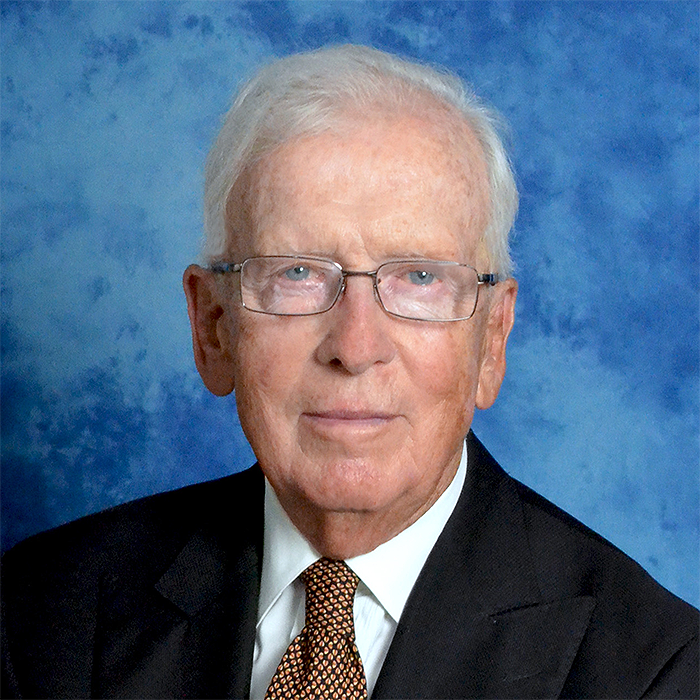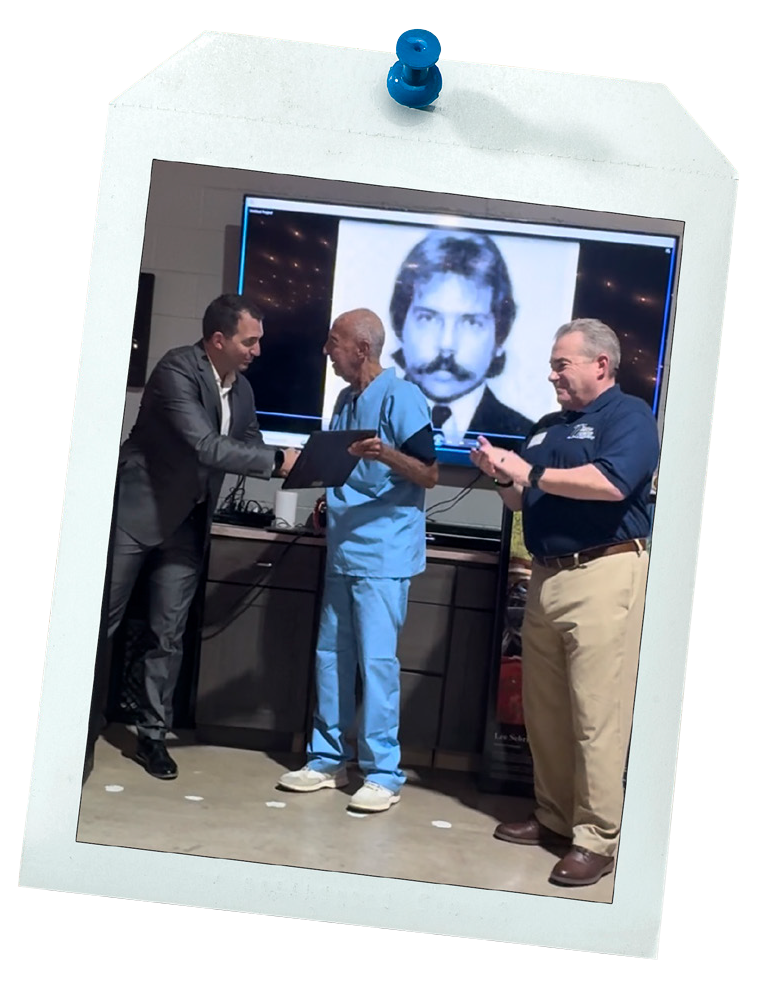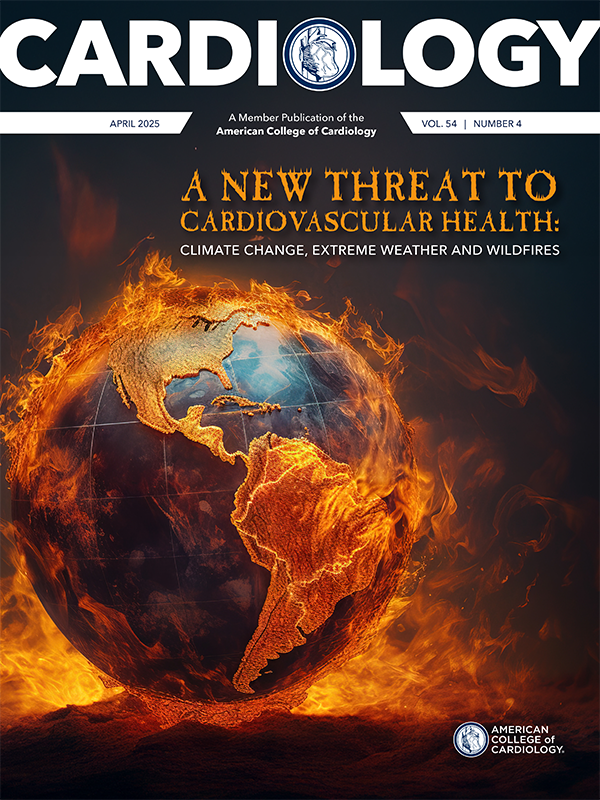The Pulse of ACC | First-Ever Concise Clinical Guidance Addresses Cardiogenic Shock
In Memoriam: Mark H. Wholey, MD

A pioneering interventional radiologist and visionary in vascular medicine, Mark H. Wholey, MD, passed away on Feb. 25 at the age of 97. He played a crucial role in introducing modern angiography to the U.S.
As a National Institutes of Health Special Fellow from 1961 to 1963, he trained at the University Hospital in Lund, Sweden, where he became one of the first U.S. physicians to perform and teach percutaneous angiographic procedures. This experience laid the foundation for his groundbreaking work in vascular interventions and helped establish angiography as a key diagnostic and therapeutic tool in the U.S.
He led one of the earliest large-scale trials of percutaneous transluminal coronary angioplasty (PTCA) to demonstrate the safety and efficacy of PCI as well as developed the first 5-French PTCA catheter.
A true innovator in his field, Wholey performed the first angioplasty in coronary bypass grafts, conducted the first coronary angioplasty in China and was among the first to perform carotid artery stenting. He developed the Wholey Wire, the first torqueable 0.035'' guidewire, and collaborated on the development of angiographic contrast injectors, embolic protection filters for carotid stenting and the automatic ICD.
As a dedicated mentor and educator, Wholey founded the Pittsburgh Vascular Institute at Shadyside Hospital, where he trained interventional radiologists, cardiologists, and cardiothoracic and vascular surgeons for more than 30 years.
Wholey's commitment to education extended beyond formal training. As a prolific researcher and author, his most influential work was on interventional cardiology techniques and devices like the modified J-shaped guidewire, balloon catheter advancements, and percutaneous transluminal dilation of aortocoronary saphenous vein bypass grafts.
The physicians he trained and inspired not only went on to advance medicine themselves, but passed on his knowledge, skill and compassion to future generations. His legacy of excellence, mentorship and groundbreaking work will continue to shape the future of cardiovascular disease treatment.
Members Making A Difference: Mark Feldman, MD, FACC

More than fifty years ago, as a young cardiologist, Mark I. Feldman, MD, FACC, saw the need for an advanced emergency response for Tucson residents and collaborated with the city, fire department, St. Mary's Hospital and ambulance companies to train first responders in emergency medicine. He himself donated 500 hours of advanced cardiology education to the program to ensure that participants could recognize and treat the cardiac crises they encountered.
His lessons paid off. The Tucson Fire Department Paramedic Program, starting with one rig in 1974, soon expanded to a dozen servicing the entire county. A particular point of pride for Feldman was the program's role in "delivering top-notch cardiology care to the most underrepresented part of the Tucson community" while "helping people in their most acute need."
For this pioneering work, Feldman was recently recognized by the City of Tucson and Tucson Fire Department with the Tucson Award of Appreciation and Recognition (called a Copper Letter.) In attendance at the ceremony were more than 100 paramedics Feldman had personally trained from the first five classes. As he accepted, he jokingly asked, "Remember me?" in case any had trouble placing him – Feldman even wore his original 1974 scrubs!
First-Ever ACC Concise Clinical Guidance Document Addresses Cardiogenic Shock
The ACC has released its first-ever "Concise Clinical Guidance (CCG)" document addressing the evaluation and management of patients hospitalized due to cardiogenic shock secondary to acute myocardial infarction or heart failure.
The objective of the CCG is to address pivotal questions around clinical decision-making and provide actionable guidance for the interdisciplinary team involved with early identification and initial evaluation and management; optimal hemodynamic monitoring; pharmacological therapies; temporary mechanical circulatory support; and critical care management.
CCGs are designed to complement the College's other clinical guidance resources, including Guidelines, Expert Consensus Decision Pathways and Appropriate Use Criteria, with a specific focus on patient populations that share certain characteristics, such as conditions, subtypes, or lines of therapy. In some cases, CCG topics will be addressed in subsequent ACC clinical policy documents as the evidence base evolves, while in other cases, CCGs will serve as stand-alone policy.
Access the CCG for Cardiogenic Shock.
Read more on CCGs, as well as ACC's broader commitment to empowering clinicians through cutting-edge clinical guidance, in a recent JACC Leadership Page.
ACC and MedAxiom Collaborate on Major Cardiovascular Care Transformation Initiative
ACC's current five-year Strategic Plan includes a major initiative focused on transforming care delivery in new areas and recognizing the importance of delivering care within the communities where patients reside. As part of this initiative, the ACC and MedAxiom are partnering together on a series of care transformation resources designed to provide a framework for health systems to effectively integrate novel paradigms of care into their delivery models.
At the heart of the series are actionable resources including self-assessment tools, best practices, and customizable strategies for implementation. The first tools in the series focused on AI in Health Care are now available in the ACC's AI Resource Center at ACC.org/AI. The AI tools address key assessment criteria, AI capabilities and clinical scenarios. Look for a second set of tools on ambulatory surgery center development to debut later this month. Other chapters addressing workforce solutions and other key innovations in cardiovascular care delivery are also in development.
Access the foundational framework document.
Read the JACC Leadership Page from Ami B. Bhatt, MD, FACC, ACC chief innovation officer; Ginger K. Biesbrock, PA-C, DSc, FACC, MedAxiom executive vice president, Care Transformation Services; and Cathleen Biga, MSN, FACC, ACC immediate past president, for more information on the framework and the unique opportunity to provide best practices for cardiovascular care delivery and implementation.
JACC Journals Offer Forum For Smoking Hot Science From ACC.25
From a study finding cannabis users face substantially higher risk of heart attack to another showing significantly increased risk of ischemic stroke and heart failure hospitalization in the 14 days after a positive test for respiratory syncytial virus (RSV), JACC Journals were home to some of the most important science coming out of ACC.25.
Other topics included use of cardiac rehabilitation in older patients with myocardial infarction complicated by cardiogenic shock; a look at systolic blood pressure and cardiovascular mortality in elderly U.S. adults taking antihypertensive medications; immune checkpoint inhibitor-related myocarditis with or without concomitant myopathy; and expert-level automated diagnosis of the pediatric ECG using a deep neural network.
View the complete list of ACC.25-related publications spanning all 10 JACC Journals and look for complete coverage of these studies, as well as Late-Breaking Clinical Trials and Featured Clinical Research, in next month's issue of Cardiology and online at ACC.org/ACC2025.
Clinical Topics: Cardiovascular Care Team, Heart Failure and Cardiomyopathies, Acute Heart Failure
Keywords: Cardiology Magazine, ACC Publications, Shock, Cardiogenic, Artificial Intelligence, Quality Improvement, ACC Annual Scientific Session, ACC25, Periodicals as Topic, Delivery of Health Care, Emergency Department, In Memoriam, Radiologists

